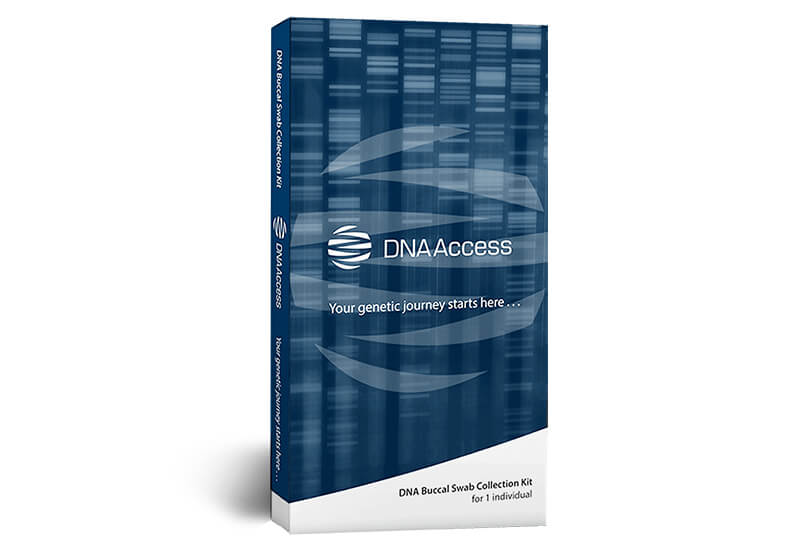Promiscuity Gene DRD4 Test
$149.00
The promiscuity gene is a genetic variant of the DRD4 gene which encodes the dopamine receptor D4. DRD4 variation can occur in a repeat region that controls the structure of the dopamine receptor. The number of repeats of a 48-bp segment varies between individuals, ranging from 2 to 11 repeats. Individuals with at least one allele of 7 or more repeats (7R+) are more likely to be sexually promiscuous, hence the 7R+ allele is known as the “promiscuity gene”.
Description
Can your genes make you more inclined to infidelity?
Take this DNA test to determine if you have the “promiscuity” gene. This test examines the RS3 repeat region in the DRD4 gene. The online results are completely private and confidential.
What is the Promiscuity Gene?
The promiscuity gene is a genetic variant of the DRD4 gene. The DRD4 gene encodes the dopamine receptor D4. DRD4 variation can occur in a repeat region that controls the structure of the dopamine receptor. The number of repeats of a 48-bp segment varies between individuals, ranging from 2 to 11 repeats. Individuals with at least one allele of 7 or more repeats (7R+) are more likely to be sexually promiscuous, hence the 7R+ allele is known as the “promiscuity gene.”
TURNAROUND TIME
SAMPLE TYPE
AGE REQUIREMENT
GENDER
Test Details
What is the Function of the Dopamine Receptor D4?
Dopamine is a neurotransmitter or a chemical made in the brain that gives us feelings of reward and pleasure. The dopamine receptor D4 (encoded by the DRD4 gene) binds dopamine and transmits the signal into the cells.
The 7R+ version of the DRD4 gene results in a receptor that binds dopamine less efficiently, compared to the common 4-repeat (4R) version, therefore transmitting reduced levels of signals in the brain. Individuals with the longer versions of DRD4 (7R+), therefore require higher levels of dopamine to achieve the same “good feeling” affects of dopamine. 7R+ versions are also associated with increased promiscuity and intriguingly sexual activity can influence dopamine levels.
How is the Promiscuity Gene Inherited?
The DRD4 gene is located on chromosome 11. Variation in the DRD4 gene often occurs in a repeat region, where the number of repeats of a 48-bp segment ranges from 2 – 11. We inherit two copies of the DRD4 gene – one from each parent. We can inherit two identical copies (e.g. both 4R) or two different copies (e.g. 4R and 7R). Inheriting a “promiscuity” variant (7R+), is associated with increased promiscuity and an increased number of extra-pair partners.
How Common are the DRD4 Alleles?
The most common DRD4 variant worldwide is the 4R version and approximately 65% of the population carry this version. The 7R form is the next most common (20%), followed by the 2R allele (9%). The other alleles are less common, especially the very rare alleles that have eight or more repeats (less than 1%). The allele frequency also varies significantly between populations. For example, the “promiscuous” 7R allele is rare in East and South Asia populations (only 1.9%) but common in the Americas (48.3%).
Other Conditions Also Associated with the DRD4 Gene
Genetic changes in DRD4 are also associated with:
- Schizophrenia
- Parkinson’s disease
- Attention deficit hyperactivity disease
- Depression
- Substance abuse
- Tourette syndrome
- Novelty seeking behavior
- Responsiveness to anti-psychotic medication
- Eating disorders
DNA Testing for the Promiscuity Gene
A simple DNA test can be completed to find out which alleles of DRD4 have been inherited. The different alleles of DRD4 are due to variation in the number of repeats of a 48-bp segment. The test determines the length of the repeat region within the DRD4 gene and specifies the number of repeats that an individual has in each of their DRD4 alleles. This test determines whether or not an individual has a “promiscuity” variant (7R+) and an increased likelihood of promiscuous behavior.
If an individual has at least one copy of the 7R+ allele (includes 7R, 8R, 9R, 10R and 11R), they are twice as likely to be promiscuous compared to individuals with 7R- alleles (less than 7 repeats).





